
Do Collagen Supplements Work? Science Backed Pros, Cons and More
Guide to collagen supplements
You're curious if taking collagen supplements will help you achieve your fitness goals, health and wellness goals.
The problem is that there is a lot of conflicting information out there about whether or not collagen supplements are effective. This guide provides science-backed pros and cons about taking collagen supplements, so that you can make an informed decision about whether or not they are right for you.
Before I dive in, I'll mention that your best whole food source of collagen a high protein bone broth. The best one for this is the chicken from Bluebird Provisions. It tastes delicious and has way more benefits than collagen.
Ok let's get started.
What is collagen?
Collagen is a sinewy protein that serves as one of the main building blocks for our bones, skin, hair, muscles, tendons and ligaments. It helps to give tissues strength and resilience, enabling them to withstand stretching, jumping and moving around all day.
Collagen supplements are incredibly popular for everyone trying to turn back the aging clock. This is because your natural production wanes as you age, which is one of the reasons why you get wrinkles, thinning hair and damaged skin.
The problem is that many of these supplements are complete garbage and do not work. I'll go through the potential issues in detail below.

How Does Taking Collagen Supplements Work?
Taking collagen supplements is thought to work by promoting collagen synthesis and production in your body where you need it most (skin, hair, teeth, gut and nails).
However, it is not that simple. You can't magically take it and expect your wrinkles to go away. That is not how collagen production works. You need to do other things to boost your natural collagen production in addition to taking supplements.
Since collagen is broken down into individual amino acids in the stomach and gut, it is not collagen that directly stimulates the production. It is the amino acids found in it that are responsible for the health benefits.
These include glycine, proline and hydroxyproline.
I see supplements as the last 10-20% of collagen optimization. Take care of the basics before wasting your money.
Collagen supplements offer various health benefits such as skin support, muscle mass and strength, joint health support, tendon support, and bone density support. But that begs the following question.
Looking for a supplement recommendation? Check my list of the 11 best collagen peptides powders for skin health.
How long does it take collagen supplements to work?
Depending on your goal, these supplements can take 4 weeks to one year before they begin to work and you experience the true benefits. These are the general timelines for specific benefits based on the studies we have to date.
- For skin health, it takes 8 weeks to notice differences.
- For gut health, you can notice differences in as little as two weeks.
- For joint pain, you need to take it for 6 months and combine it with strength exercises.
- For bone health, the studies suggest taking it for one year before bone mineral density changes occur.
- For muscle building, collagen protein powder takes 12 weeks of use combined with weight training to take effect.
- For blood sugar control, they can begin to work right away if taken before carb heavy meals
- For hair growth, it can take 8 weeks to see the benefits.
It is important to note that making new collagen can take a long time. For this reason, you have to be patient and not expect immediate results.
I'll tell you right now that taking animal sourced collagen peptides will not work the way you think it will. You have to combine it with other collagen boosting strategies to get the most of it.
Collagen For Health Benefits
The benefits of collagen in supplement form are reducing wrinkles, improving joint pain, increasing bone health, muscle mass, blood sugar control, digestion, reducing inflammation and more.

I'll go through each of these below.
1. Improve your skin's elasticity and firmness
Taking collagen supplements can help improve your skin's elasticity, hydration and firmness by stimulating your body's own production of collagen (1).
How does this process work? Collagen stimulates fibroblasts in the cells of the dermis layer of your skin. This process builds new connective tissue or skin.
You should aim for 10-15 g daily for best results.
2. Reduces osteoarthritis and pain in joints
Collagen powder benefits include improving joint health and reduce pain associated with things like osteoarthritis or arthritis.
Studies have shown that taking 10 grams daily for two months can reduce pain and start to rebuild your joints (2). These supplements help to rebuild connective tissue around your cartilage while 'greasing' your joints with extra synovial fluid.
Together these things help to absorb the shock of movements like walking so that you can get back to doing what you love. Learn more about collagen for joints in my master article because I've barely touched the surface here.
3. Builds up bone mineral density and strength
Studies show that taking 5 g of collagen for one year can both increase your bone mineral density and reduce the risk of fractures (3). The researchers think that collagen helps to trigger some bone building processes in your body.
Also, the collagen seemed to have a protective effect on bone breakdown associated with osteoporosis.
I will mention that the two studies were done on post-menopausal women. But I would guess it can be extended to most populations sine that particular one is at a slightly higher risk of bone issues.
While these results are great, more research is needed to further understand the effects of collagen supplementation on bone density and strength.
4. Can increase muscle mass and strength
I didn't believe this until I read the study. The study is far from perfect but gives us a glimpse into the important of protein first, and specific amino acids second.
A 12-week study in 2019 showed that combining 10 g collagen peptides with weight training increased both body and muscle mass in the 25 men who participated, compared to placebo (4).
This increase in muscle mass and strength is incredibly important to both men and women as they age. The tricky thing about this study is the placebo group received dextrose (carbs) instead of a different type of protein like whey.
So in my opinion, we can't quite rule out that it was the protein and not the collagen protein specifically that made the difference.
5. Improve digestion and nutrient absorption
Taking glycine supplement along with collagen can improve digestion and nutrient absorption because of unique amino acids glycine and proline.
These two help stimulate the production of stomach acids and gastric juices to help you digest food.
This ensures that you are getting the nutrients and minerals from your food, and not just the calories.
6. Fights GI tract inflammation
Collagen may help fight inflammation associated with IBS, IBD, ulcerative colitis and Crohn's disease thanks to glycine. Yes, this same amino acid I mentioned above is being used to treat many inflammatory conditions (5).
So what is so special about glycine? It is among the most potent anti inflammatories because of its ability to form new connective tissue in your intestines and colon.
This seals up the tiny holes caused by years of inflammatory foods and a leaky gut. You can read more about the unique health benefits of glycine.
7. Helps improve insulin signalling and response
Taking collagen supplements may help improve the insulin response by reducing your blood sugar response from carb heavy meals. This is because of the 3 g of glycine found per serving.
These doses of glycine are being used to treat those suffering from type 2 diabetes (6). Aim for 10-15 grams in the morning or before your big meals for best results.
Note: you get the same amount of glycine in one cup of bone broth.
How to Make Your Collagen Work Better
You can make collagen work by taking the right dose at the right time, sourcing it properly, taking the right type and combining it with weight training.
Some of these might be surprising, so let's quickly discuss each of them.
Get the Right Dose of Collagen Peptide Supplements
Depending on your goals, you need between 5-15 grams of collagen per day. I'd recommend reading how much collagen per day for best results to get an idea of how much you need.
Source it Properly
Collagen is so popular that it has become a commodity. What do I mean by this? Massive global companies control 99% collagen production. They make it at scale in big factories in South America and Asia.
This means that almost all of the commercially available collagen powder, peptides, hydrolyzed versions are all the same. The tricky thing about the supplement industry is the amount of greenwashing going on.

Let me explain what I mean by this. Greenwashing is finding ways to market everything as 'good for you' and 'healthy.' Just seeing those two phrases makes my skin crawl.
You see this in collagen products by labelling them as 'grass fed beef' or 'pasture raised.'
In reality, all beef is fed grass for a portion of their life and all cows are raised on pasture for a small percentage of their life. So these claims are useless without some sort of third party validation.
For this reason, the only products I would recommend are ones that are certified organic with an actual certification logo on the package somewhere. In the USA it will be USDA Organic.
You also want something that is sourced from animals raised in USA, Canada, Australia, New Zealand or Europe.
While organic is far from perfect, it is a good system of checks and balances to make sure animals are raised under certain living standards and fed certain things.
Many people ask me about specific brands. I don't follow the consumer products that closely. So use the info above and ask the brand for specific answers.
If they are being vague intentionally vague in their answers or marketing materials, then run for the hills.
I find that brands respond best to questions on their Amazon product page because it is then public.
Take at the Right Time
In order to determine the best time to take collagen supplements, you need to take it at the right time of day based on our desired outcome. As you'll see below, there is some overlap in timing.
- For weight loss: take it before meals on an empty stomach to take advantage of the fullness benefits.
Looking for a supplement recommendation? Read my guide to finding the best collagen powder for weight loss.
- For gut health and inflammation: take it first thing in the morning and before your meals to help stimulate digestive enzymes.
- For muscle gains: take it 60 minutes before your workout with 50 mg vitamin C
- For joint pain and tendon rehab: take 50 mg vitamin C and your supplement 30-60 minutes before doing rehab exercises or lifting weights.
- For blood sugar control: take it before carb heavy meals.
- For bone health: take it daily, anytime works.
- For skin and hair growth: take it any time of day.
Get the right Type
To be honest, you don't need to sweat the details in terms of specific types of collagen. Most of the research simply uses bovine sourced powder.
If you have food sensitivities to certain types: ex marine or chicken, then avoid those. Greenwashing extends to different types and forms. Some brands will tell you that you need hydrolyzed because it is better digested.
But others will stress that marine sourced products are superior. There is limited research of anything but good ol' fashioned bovine collagen peptides.
I always recommend a high protein bone broth in place of collagen supplements because of the extra amino acids, electrolytes, glucosamine and chondroitin. You don't get any of these extras in collagen.
If you are looking for one, try the chicken bone broth powder from Bluebird Provisions.
Lift weights and thank me later
Lifting weights is the number one thing you can do to optimize your collagen production as you get older. Anything is better than none, so if you like doing workout classes, then start with those.
Ideally, you would be picking up and putting down heavy things once or twice per week for best results.
Collagen Cons
Collagen cons include the fact that it may not work for you, you might be allergic to it, there are no vegan versions, you might get bloating, diarrhea, headaches or other side effects, the sourcing is questionable and brands lie to you about the benefits.
Woah that is a lot of stuff I just dumped on you.
To make matters worse, many of these products are made using nasty sprays and chemical solvents to extract the nutrients from the hides and skin of the animal. For this reason they are classified as hyper processed.

Outside of the heavy manufacturing, I'd be most concerned with the GMO nature of most of these supplements. You see, most of them are made and sourced in South America and Asia where the food standards and animal living condition laws are different.
All supplement brands buy their collagen from local supplement distributors in the USA. These distributors all buy it from a few massive, multi billion dollar companies.
Then the brand gets another company to package it in a fancy canister with a label and some pastel colors. Then they sell it to you.
This is just how the industry works. If you are comfortable with this, then there are limited downsides.
Is it better to get collagen from food?
Is it always better to get collagen from real food because food has the perfect balance of amino acids and the required vitamins and minerals to help you digest and absorb the collagen properly.
You see, when you isolate proteins for commercial purposes, you remove everything else (nutrients, vitamins, minerals) in order to make a nice looking powder. The problem is that these nutrients are in perfect balance because nature is smarter than we are.
When we go messing with it by concentrating certain things and removing others, the balance gets disrupted. You can find the ultimate list of high collagen foods because some of them are surprising and absolutely delicious.
Is it worth taking a collagen supplement?
Yes, it is worth taking a collagen supplement if you do not want to get it from real food, need a convenient source of protein and are curious to see if it will work for you.
Also, if you are pressed for time and need an on-the-go protein source, it may be worth taking. The cost might be high for some and cheap for others. If it fits your budget and you want to experiment, go for it!
Is there a downside to taking collagen?
The major downside to taking collagen is that it may not work as well as you want. While they may provide benefits such as increasing muscle mass, preventing bone loss, and improving skin health, this does not guarantee that it will work for you.
It is important that you keep your expectations in check before taking anything. It is not a magic powder that will instantly make you lose weight and look better... nothing is.
It takes time and experimentation to see what works best for you. And if it is not working, don't be afraid to get rid of it.
How long after taking collagen will I see results?
When it comes to taking collagen, you must understand that the results won't be immediate. Generally, it takes between 4 to 12 weeks (1 to 3 months) for skin health benefits to be seen and between 3 to 6 months for tendon support, joint health support, and bone-density support.
However, the effects of collagen on hair and nails can take up to 6 months to be seen and there is little research to support these specific things.
Can collagen reverse sagging skin?
No one can guarantee to you that collagen can reverse sagging skin in a specific area, but it may help to tighten things up by hydrating the area.
We know that these supplements have been shown to gradually reduce the appearance of crow's feet, but sagging skin is a bit more extreme and may require other things to fix.
Closing Thoughts
Overall, collagen supplements seem to be safe for most people. They may have some minor side effects, such as digestive issues, but these are typically mild and go away on their own.
Additionally, collagen supplements can have some benefits, such as improving skin health, reducing joint pain, and boosting muscle mass. If you’re interested in trying a collagen supplement, I would consider trying bone broth instead.
It has all the protein and amino acids plus electrolytes, glucosamine and chondroitin. Bluebird Provisions bone broth powder is the best one that you can find online or on Amazon.
Disclaimer: this information is for educational purposes only and has not been evaluated by the FDA or CFIA. It is not intended to diagnose, treat, cure, or prevent any disease. Please consult your primary care physician for advise on any of this.
Sources
(1) https://www.ncbi.nlm.nih.gov/pubmed/7288206
(2) https://www.ncbi.nlm.nih.gov/pmc/articles/PMC5793325/
(3) https://www.ncbi.nlm.nih.gov/pmc/articles/PMC5793325/
(4) https://www.cambridge.org/core/journals/british-journal-of-nutrition/article/collagen-peptide-supplementation-in-combination-with-resistance-training-improves-body-composition-and-increases-muscle-strength-in-elderly-sarcopenic-men-a-randomised-controlled-trial/9426E375742D094F91029FD0364815C4
(5) https://www.ncbi.nlm.nih.gov/pubmed/12589194
(6) https://pubmed.ncbi.nlm.nih.gov/12450897/

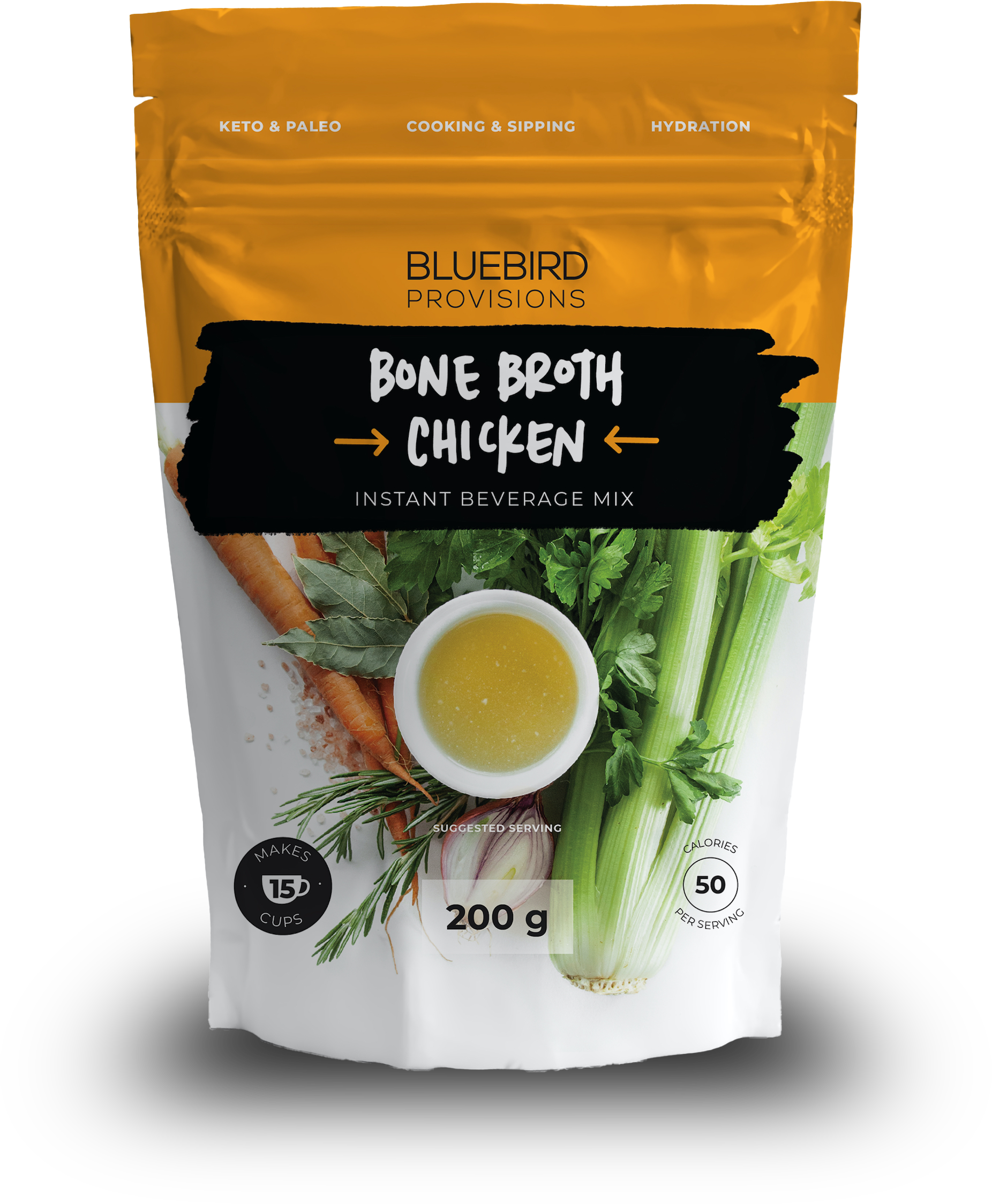
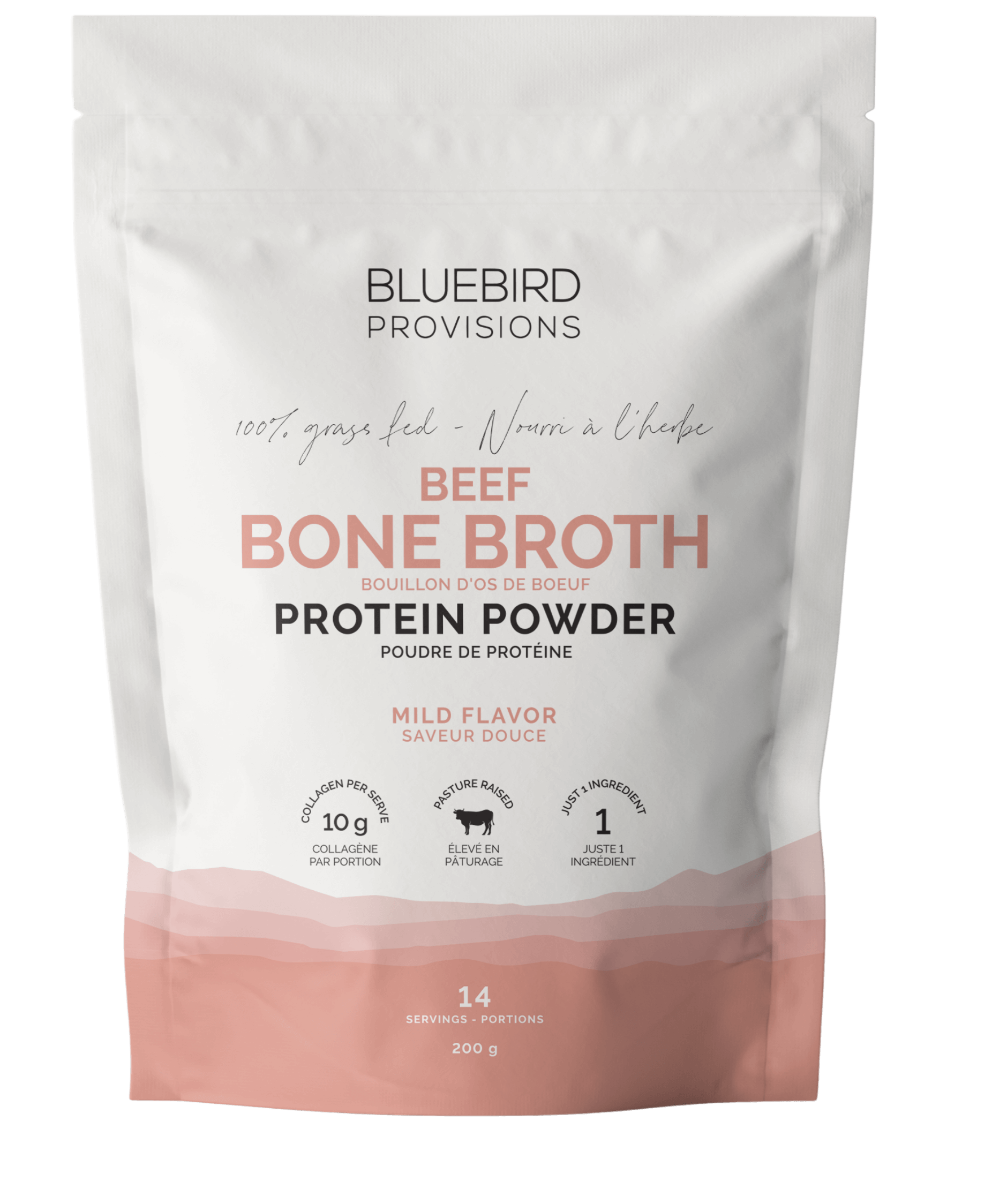

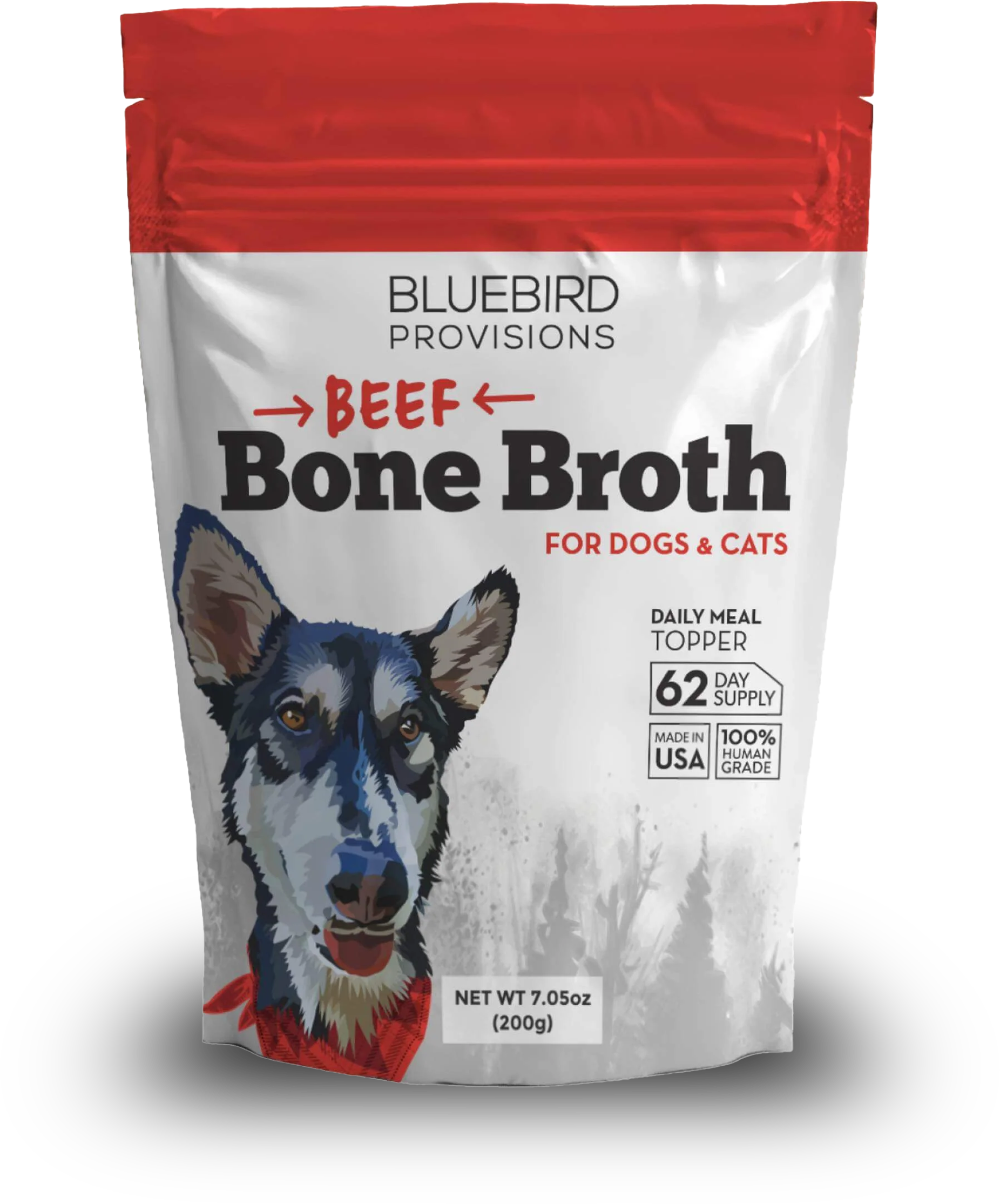

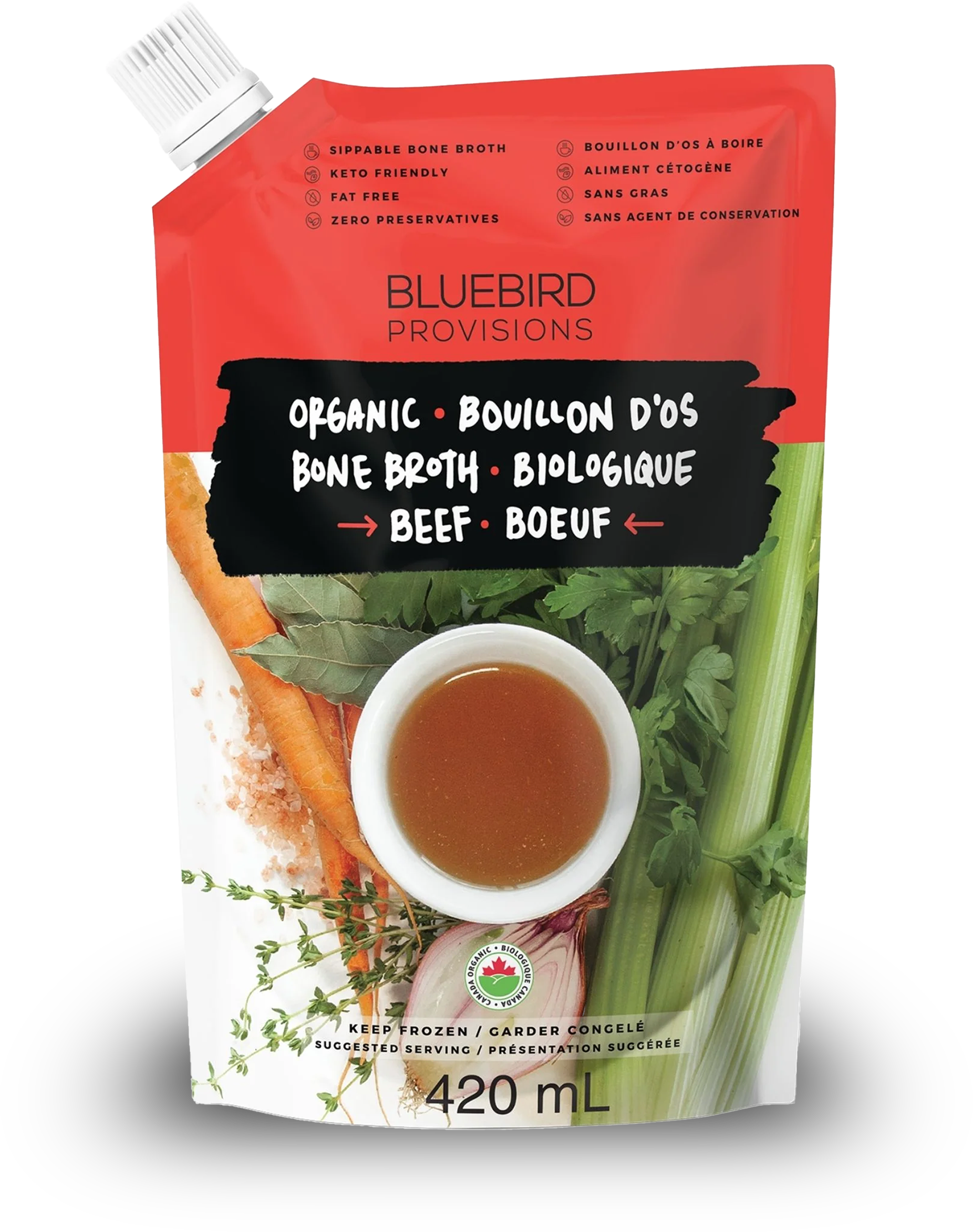


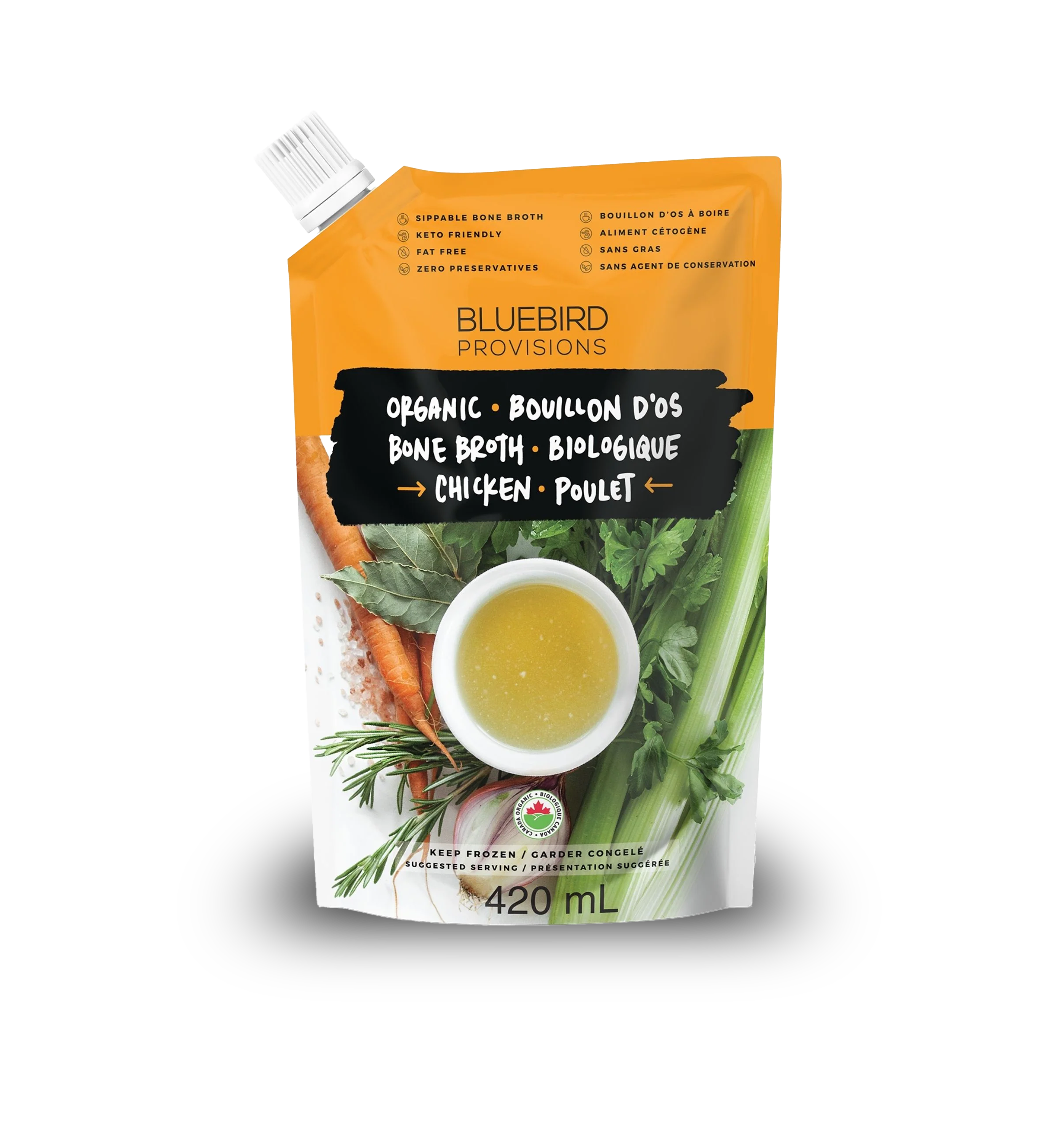
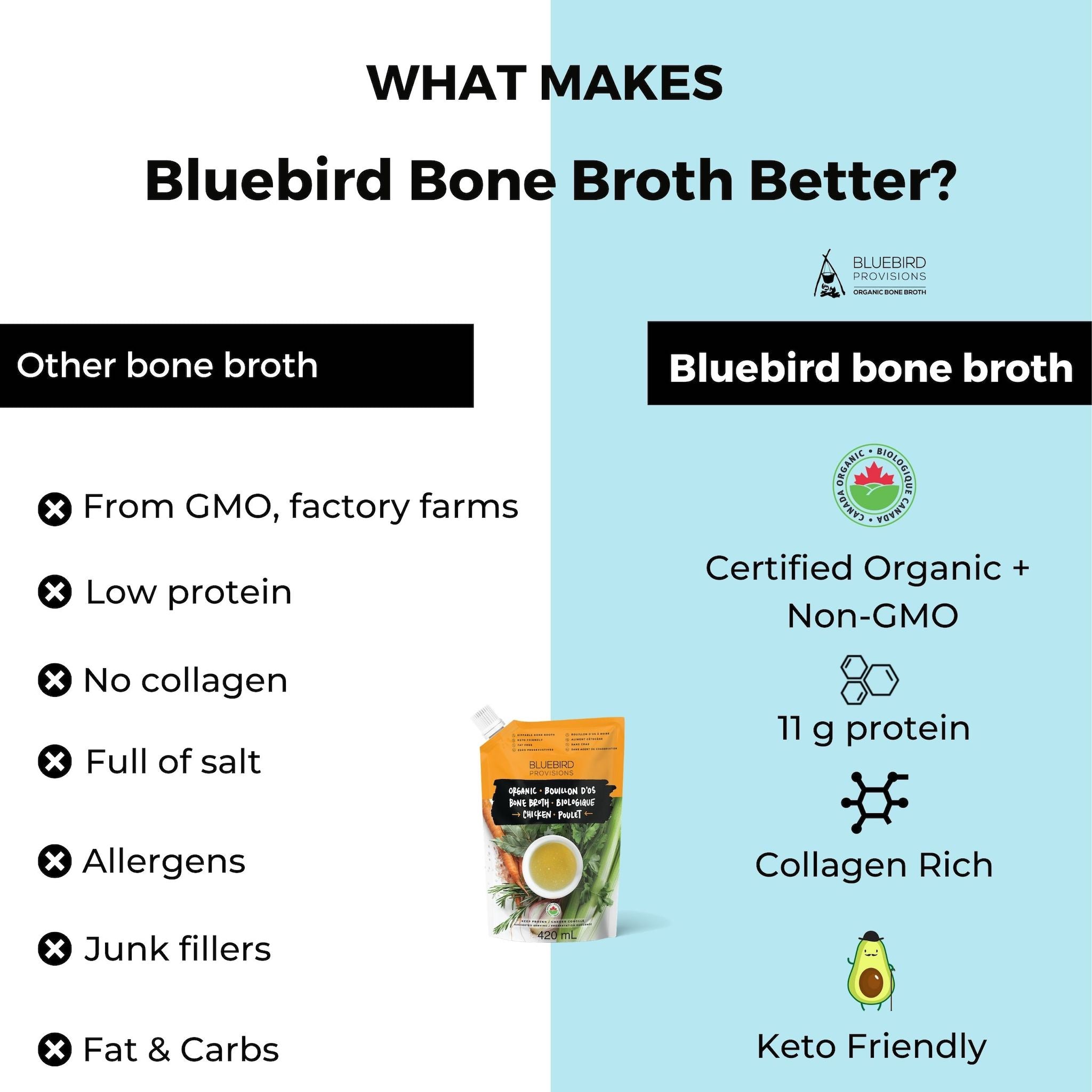
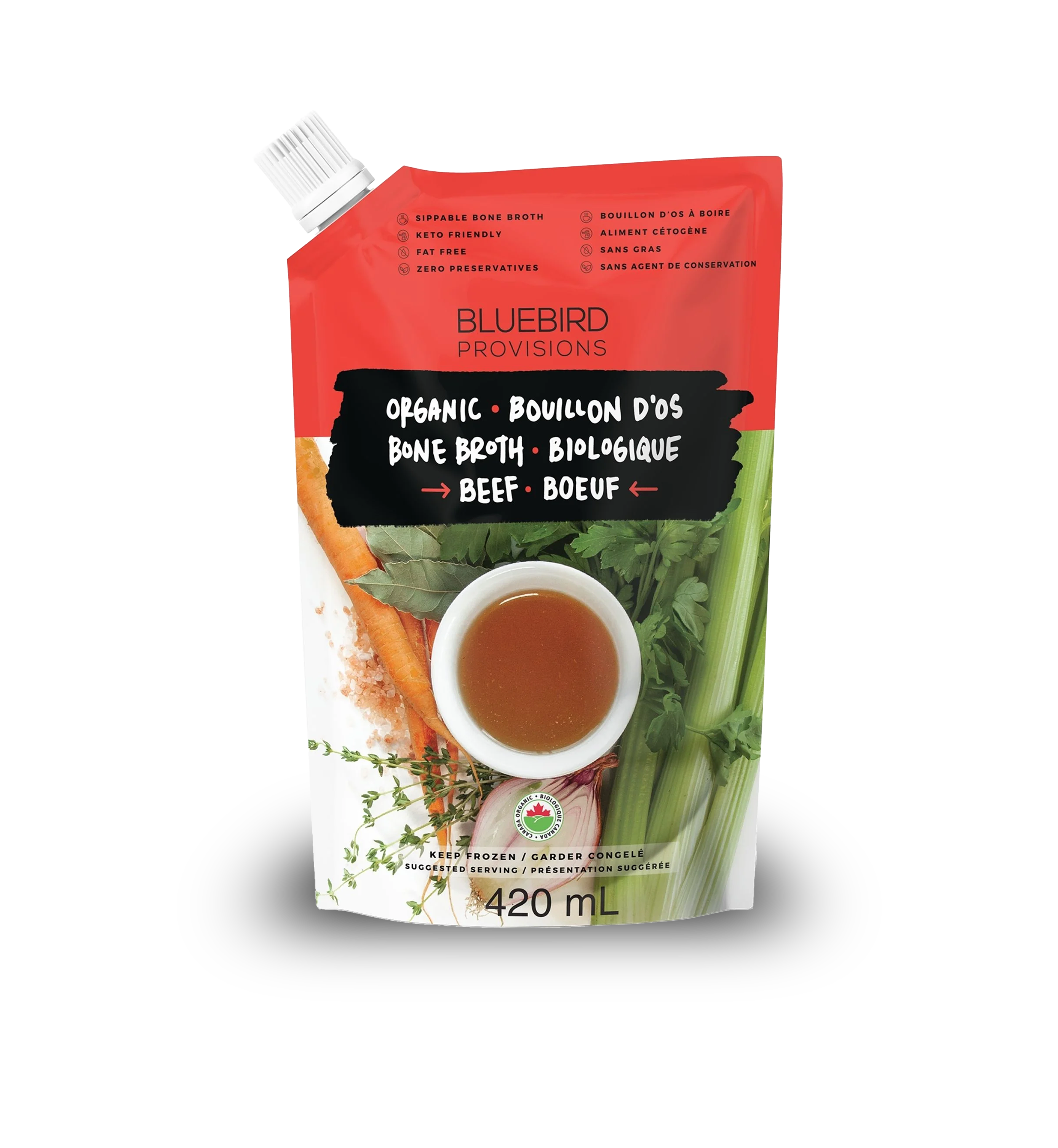
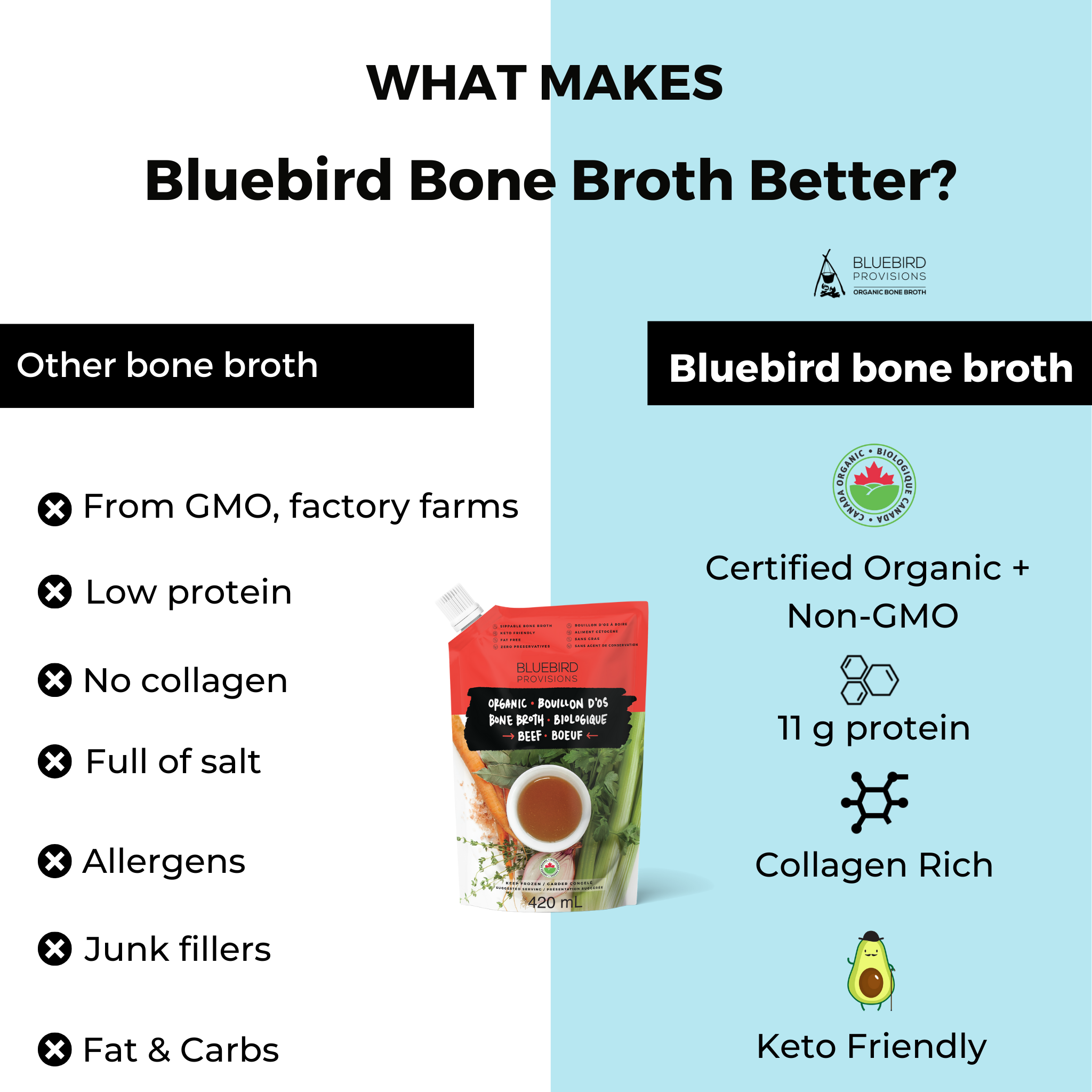
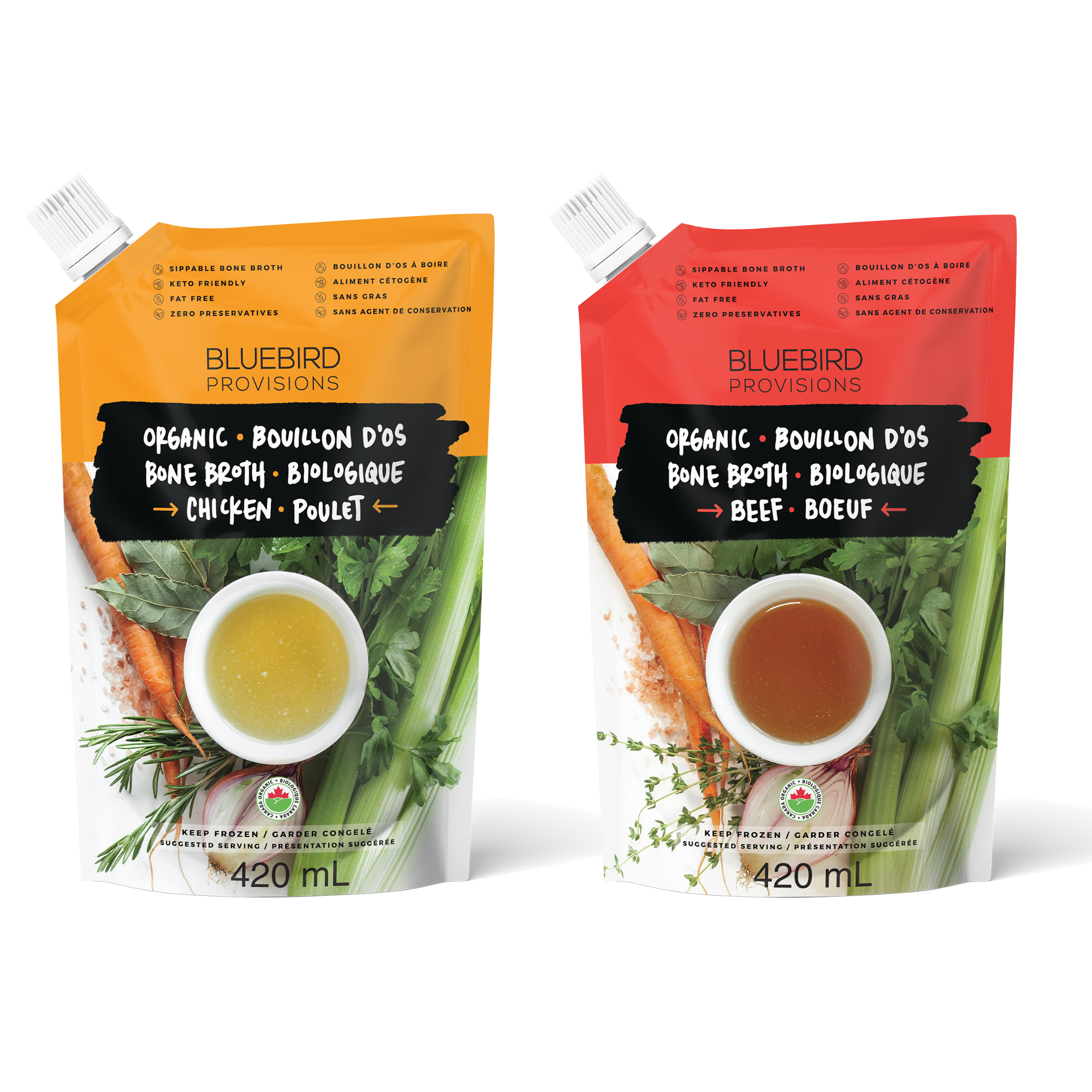

Leave a comment
This site is protected by hCaptcha and the hCaptcha Privacy Policy and Terms of Service apply.